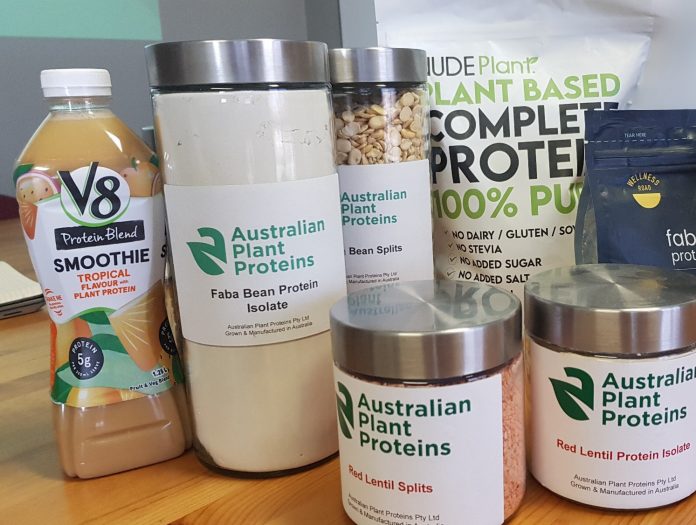Lack of government support of local plant-protein manufacturing could see puts Australia at risk of entrenching our reliance on imports, warns alternative protein think tank Food Frontier.
Horsham based Australian Plant Proteins (APP) went into voluntary administration at the end of June. The largest of three commercial-scale plant-protein fractionation facilities in Australia, APP is the only manufacturer of high quality Australian grown faba bean and pulse protein isolates, supplying local and international food manufacturers.
Food Frontier CEO Dr Simon Eassom says the development should not be seen as a failure of an individual company, but a warning that building a long-term sustainable industry takes time, ongoing investment, and commitment from government.
“If we contrast Australia with a world leader in this sector, the government sponsored Protein Industries Canada has co-invested $190m in the time since APP was founded in 2016 and is strategically assembling and supercharging Canada’s domestic plant protein industry to reach $27.5b by 2035,” he said.
“Sadly, the potential closure of APP pushes Australia further behind countries such as Canada and China and resigns Australian manufacturers to relying on the importation of soybean concentrates and protein ingredients, often of variable quality and suitability.”
Plant-based protein production is a sustainable industry that benefits consumers, farmers, and the environment. If processing facilities aren’t supported, says Dr Eassom, Australia will “miss an enormous opportunity to enhance its domestic supply of high-quality protein ingredients for the food manufacturing sector”.
Continuing a 14-year decline, ABS data shows Australia’s national spending in R&D dropped again in 2023.
“This, combined with a lack of manufacturing capabilities such as that provided by APP puts Australia at risk of entrenching our reliance on imports rather than leading as a major exporter of innovative food products,” Dr Eassom said. “We hope that APP finds a buyer before it’s too late but, really, the support needs to come from government.”





